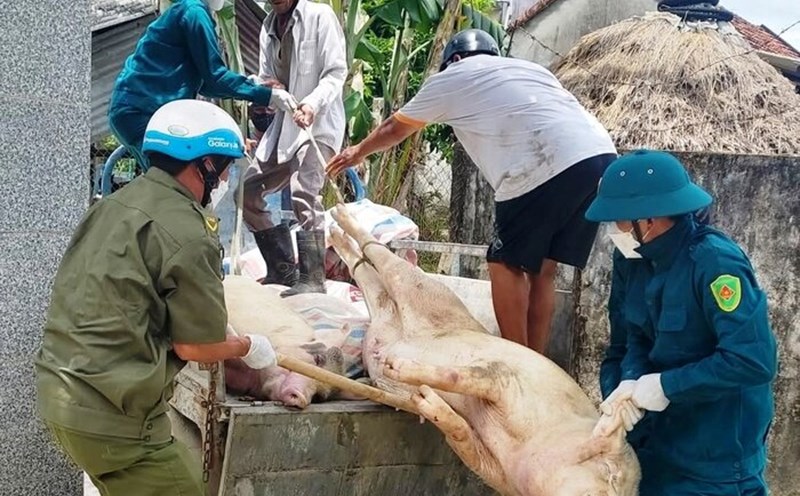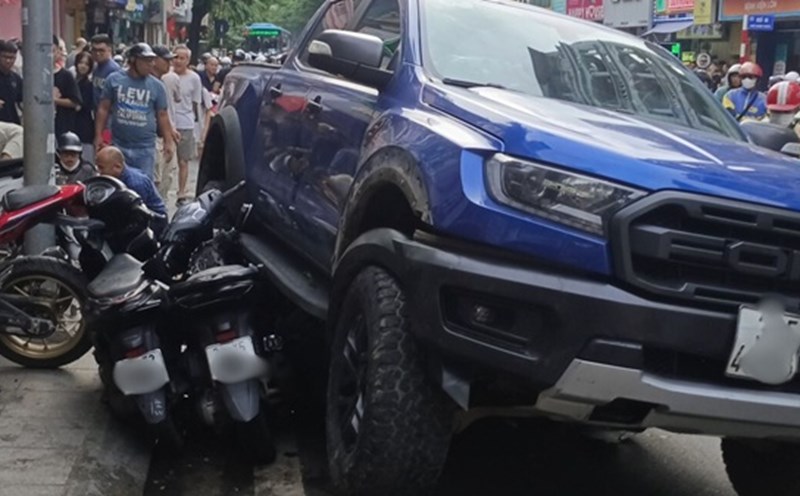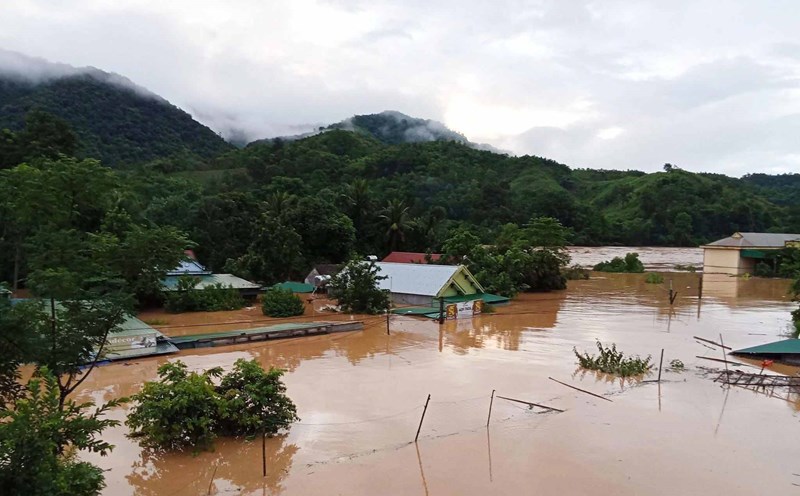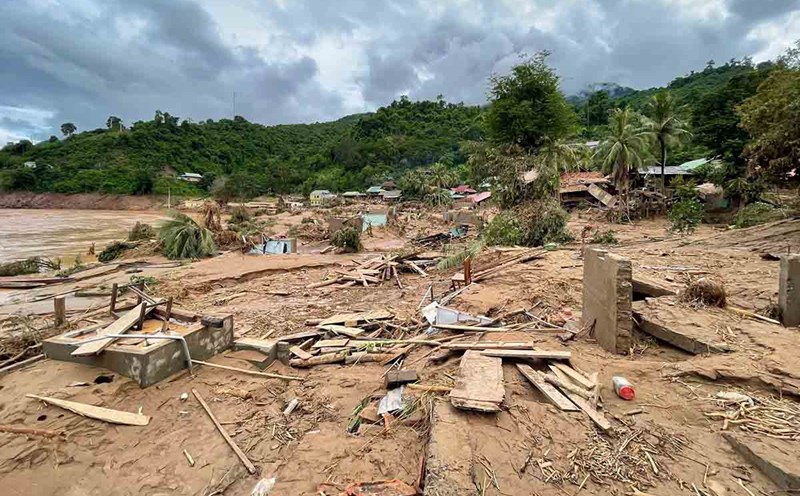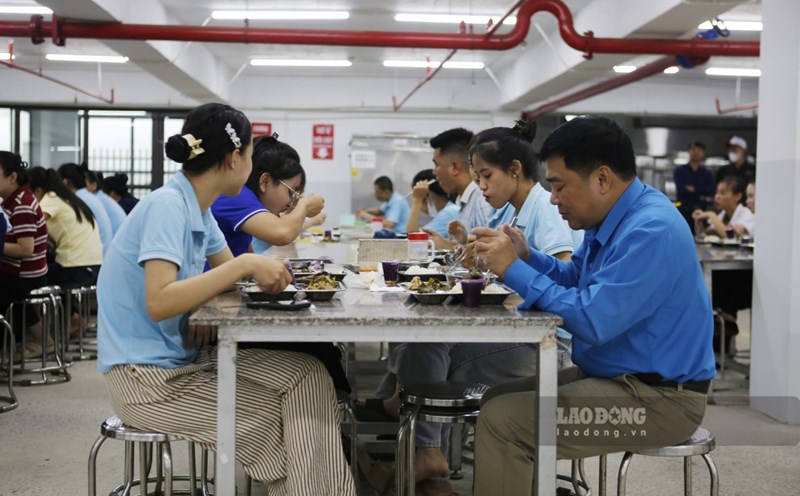According to the reporter's investigation, when African swine fever broke out in Quang Ngai, people in Phuc Minh village, Nghia Hanh commune had to pay from 200,000 to 600,000 VND (a high or low amount depending on the weight of the pig) to destroy each pig that died from the epidemic. This amount of money was given directly to the destruction team without documents, causing many people to be upset because the damage caused by the epidemic was already large, now they have to bear additional destruction fees.
Speaking to Lao Dong Newspaper reporter, Mr. Nguyen Ngoc Tuan - Chairman of Nghia Hanh Commune People's Committee - said that immediately after receiving the feedback, the commune police stepped in to verify, collect information and clips provided by people about being charged money when destroying sick pigs. The commune's Steering Committee for Disease Prevention and Control affirmed that all costs related to the destruction of infected pigs - including transportation, labor and medicine - are paid by the commune People's Committee, and are absolutely not collected from the people.
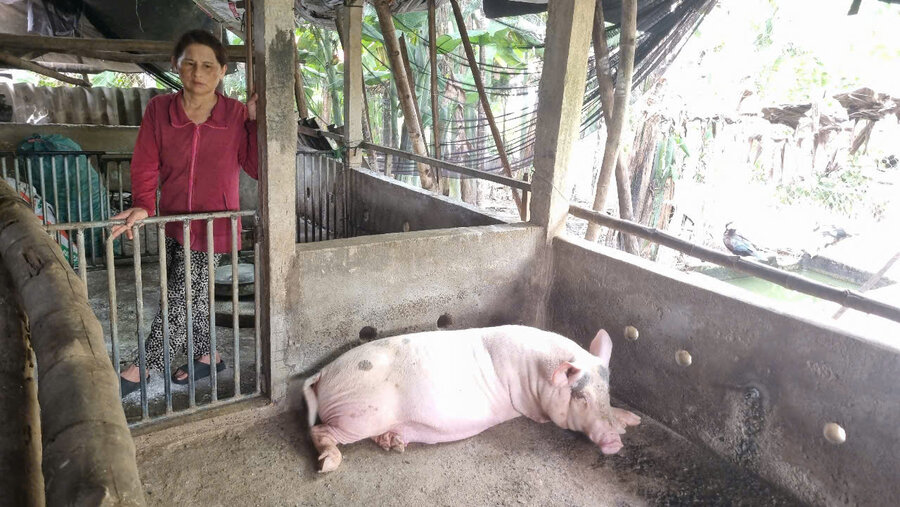
According to Mr. Tuan, after inspection, 30 households in Phuc Minh village had to pay money to collect dead pigs. Currently, the entire amount has been returned to the people.
Through verification, the commune police clarified that during the time the reserve fund had not been provided, the people and the transporting driver had agreed on the fee for collecting sick pigs. The driver also committed to refunding when there was funding from the State. "The police have worked with the driver and determined that there is no sign of taking advantage of the epidemic for profit. At the same time, we require drivers to seriously learn from experience, said Mr. Tuan.
Mr. Tuan emphasized that the People's Committee of the commune does not have a policy of collecting money to destroy the diseaseated pigs. The People's Committee of the commune has invited village heads to disseminate the spirit of not collecting money from people when collecting pigs that died from the epidemic. At the same time, the villages are required to review and make a list of households that have paid the money, and those who collect it must directly return it.
Speaking to Lao Dong Newspaper reporter, Ms. Pham Thi My Hanh - Director of Nghia Hanh Commune Public Service Supply Center - said that the unit is responsible for establishing teams to collect and destroy sick pigs. However, due to the rapid outbreak and the lack of timely funding for epidemics, the center has worked with the villages to encourage people to advance costs for the collection team. The fee is agreed upon by the people and the destruction team, based on the weight of each pig.
"Due to the urgent work, we have not had time to report to the commune leaders. I have requested the villages to stop collecting money and make a list of households that have paid to refund. The Commune People's Committee has also advanced funds to pay for the collection and destruction of dead pigs," said Ms. Hanh.


